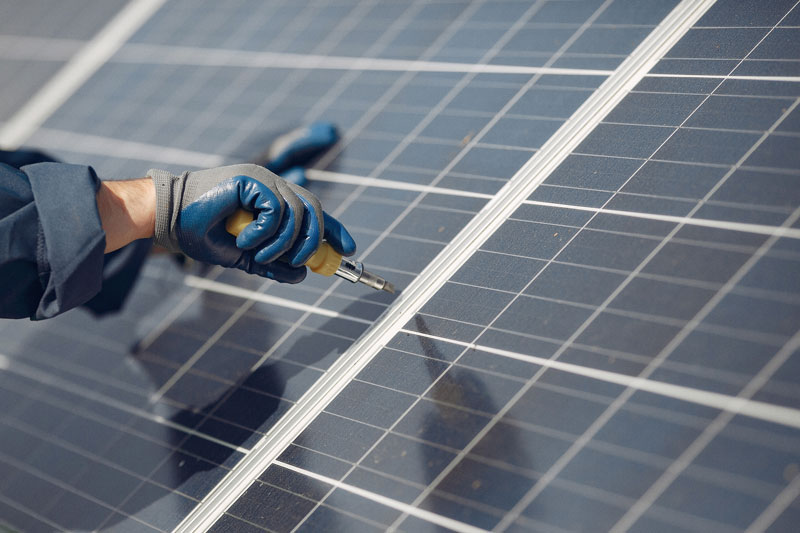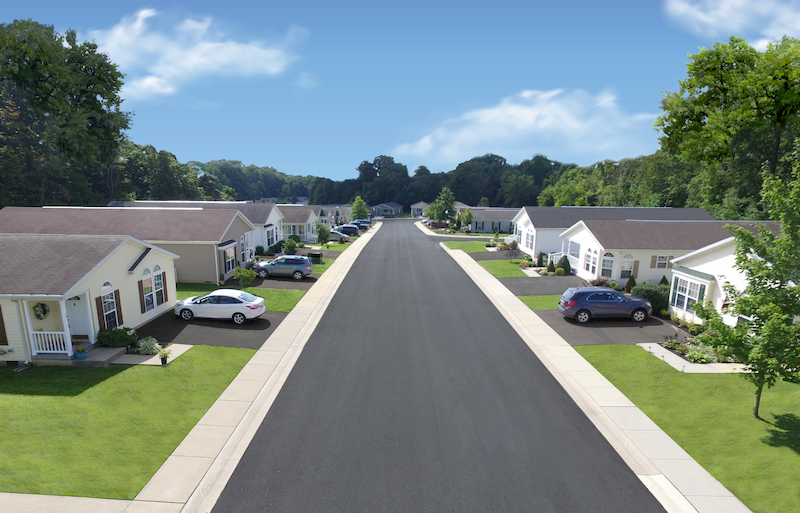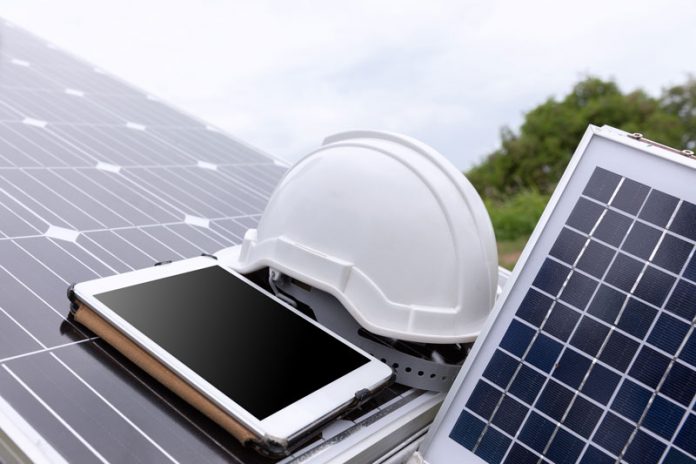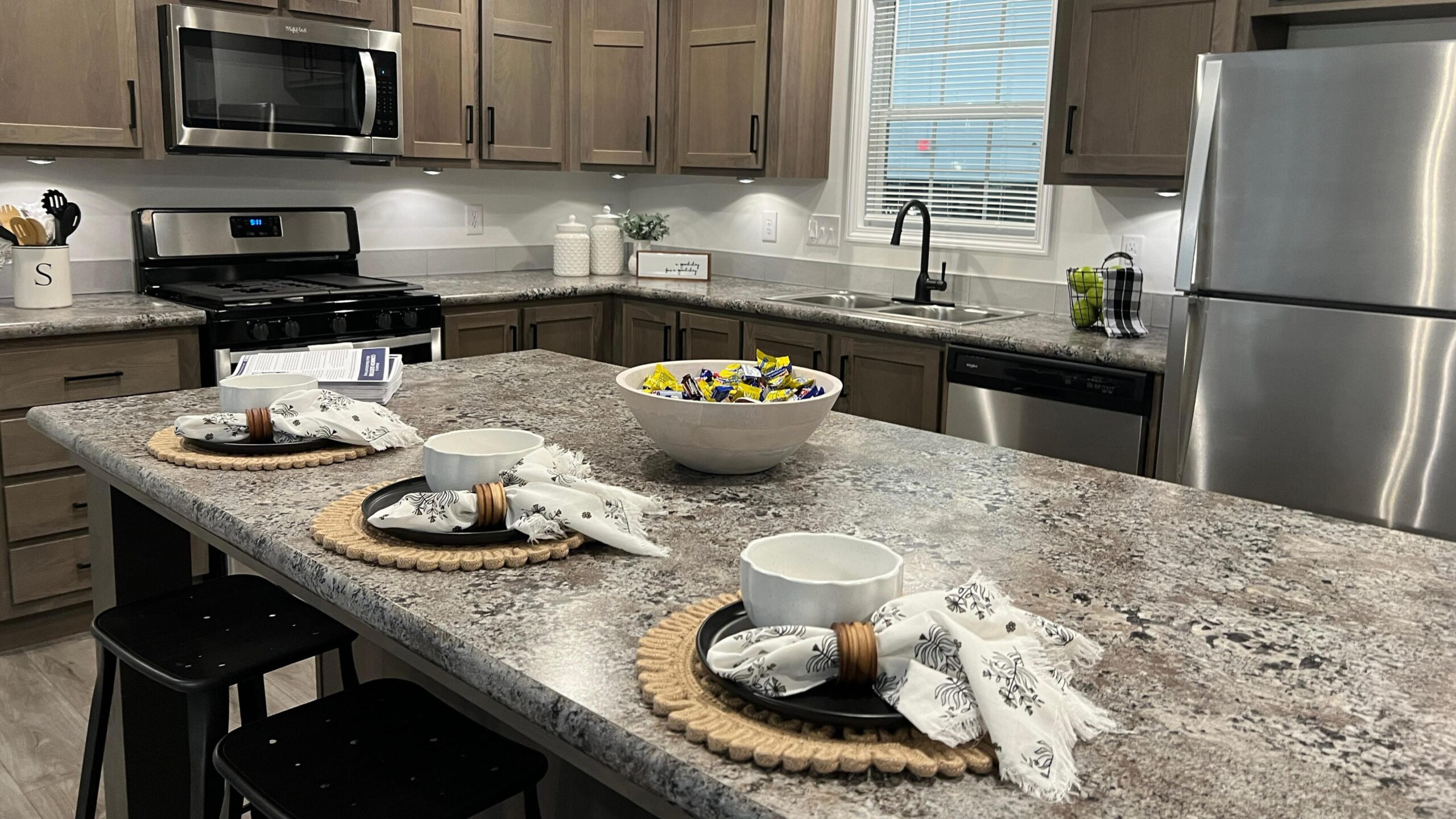An eco-friendly, energy-efficient home is an appealing option for many homeowners today. ENERGY STAR® Certified manufactured homes are one great option for a home that’s easier on the planet and saves money on utilities. But for those who want to take things a step further, solar panels can be a great investment for powering your manufactured home sustainably.
In this article, we’ll answer several frequently asked questions about solar panels for mobile homes. You’ll find key information here about the cost of solar panels, solar panel installation and much more.
Can you install rooftop solar panels on a manufactured home?
Not usually. PV panels are heavy and have specific structural requirements. In addition, rooftop solar panels for mobile homes may not be legal in every jurisdiction, and every mobile home park.
What kinds of solar panels are appropriate for a manufactured home?
Although standard rooftop PV panels usually can’t be installed on a manufactured home, a homeowner does have some options, such as:
- In some cases, another structure such as a detached garage or enclosed patio may be suitable for a rooftop PV array. Always consult both the manufacturer of the structure and the PV manufacturer first to learn if your structure is a good choice for solar panel installation.
- If the lot is sufficiently large, homeowners can purchase a ground-mounted photovoltaic system, in which the PV panels are mounted in the yard. (Note that you’ll need a substantial amount of space for this option, as even a relatively small system can occupy several hundred square feet.) For many manufactured homeowners, this is the easiest and most cost-effective solar panel option.
- Solar roof shingles are miniature solar PV cells the size of a typical roof shingle, and they can be a great alternative to traditional roof-mounted PV panels. Solar shingles have recently become substantially more affordable (particularly with solar tax credits), and they could save some homeowners as much as 40 to 60 percent on their electric bills.
- Solar-powered water heaters are another popular option that use stored energy from the sun’s heat to provide cost-effective hot water on demand.
For more information on selecting a solar system and whether solar is right for you, see the FTC’s guide to solar power for your home.
How much does it cost to outfit a manufactured home with solar panels?
The exact cost of installing solar panels on a manufactured home lot will vary widely according to the size and nature of the installation. Remember that solar capacity is a long-term investment, and larger solar panel arrays provide homeowners with the potential to capture greater savings when installed correctly.

You can calculate the cost of a mobile home solar panel system by using one of the many solar panel cost calculators available online (although you should treat the amount as an estimate until you get an actual quote). Solar panels for mobile homes must be installed by trained professionals, so remember that you’ll also need to pay installation costs.
Note that several tax credits are available for homeowners who install solar panels on their homes, so the final adjusted cost of these systems will almost always be lower. The main tax credit for solar panel owners is a federal credit called the investment tax credit for solar power, but your state government may also offer additional tax credits.
How does a solar-powered water heater work?
Some people reduce their heating bills by using solar-powered water heaters. A solar-powered water heater transfers the sun’s heat energy to a water heater tank, which provides an excellent medium for storing heat. Solar water heaters come in several varieties that can cost anywhere from $2,000 to $5,000 including installation, and they can be a good option for manufactured home owners who aren’t ready to invest in full-scale solar yet.
What is community solar?
Community solar power is an alternative way of powering your home through solar power without installing panels on your property. Investors build community solar panel farms on which homeowners can purchase access to a panel. A homeowner then receives a credit on their electric bill for the amount of power produced by the purchased panel, and the solar company bills the homeowner (ideally at a lower rate) for the portion generated by the solar panel. Community solar is an increasingly popular option for homeowners who don’t have the option of installing solar panels.

Are there ways to decrease energy bills other than solar panels?
Yes! First, as previously mentioned, many outstanding ENERGY STAR® Certified manufactured homes are available that are specially designed to provide energy efficiency. In addition, homeowners can improve their manufactured home’s energy efficiency by applying some simple tips from the experts at MHVillage. Whether it’s solar power or energy efficiency hacks, there’s almost always a way to reduce your manufactured home’s carbon footprint and save money at the same time.














